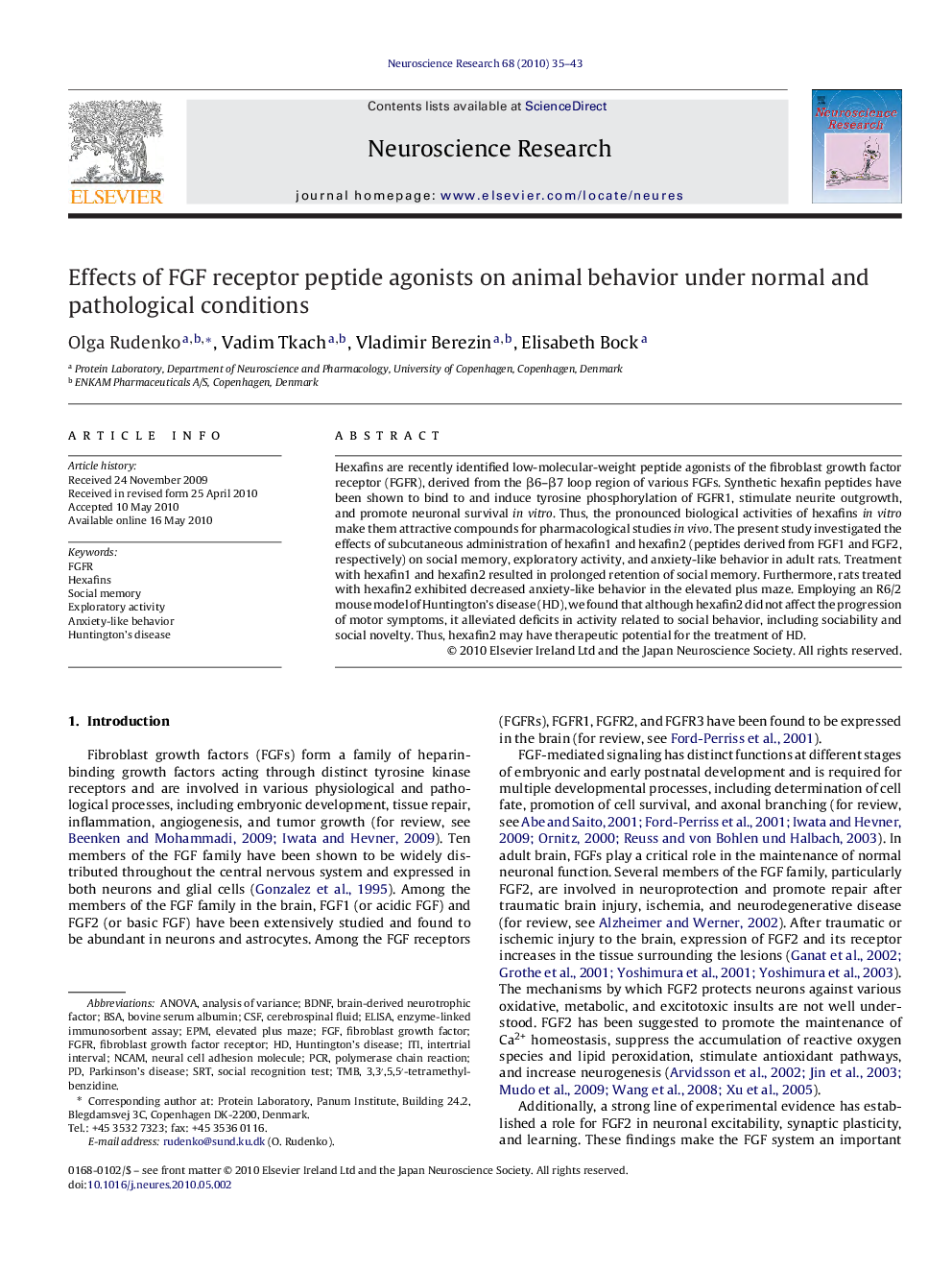| Article ID | Journal | Published Year | Pages | File Type |
|---|---|---|---|---|
| 4351771 | Neuroscience Research | 2010 | 9 Pages |
Abstract
Hexafins are recently identified low-molecular-weight peptide agonists of the fibroblast growth factor receptor (FGFR), derived from the β6-β7 loop region of various FGFs. Synthetic hexafin peptides have been shown to bind to and induce tyrosine phosphorylation of FGFR1, stimulate neurite outgrowth, and promote neuronal survival in vitro. Thus, the pronounced biological activities of hexafins in vitro make them attractive compounds for pharmacological studies in vivo. The present study investigated the effects of subcutaneous administration of hexafin1 and hexafin2 (peptides derived from FGF1 and FGF2, respectively) on social memory, exploratory activity, and anxiety-like behavior in adult rats. Treatment with hexafin1 and hexafin2 resulted in prolonged retention of social memory. Furthermore, rats treated with hexafin2 exhibited decreased anxiety-like behavior in the elevated plus maze. Employing an R6/2 mouse model of Huntington's disease (HD), we found that although hexafin2 did not affect the progression of motor symptoms, it alleviated deficits in activity related to social behavior, including sociability and social novelty. Thus, hexafin2 may have therapeutic potential for the treatment of HD.
Keywords
3,3′,5,5′-tetramethyl-benzidineSocial Recognition TestFGFRNCAMTMBsRTITIEPMFGFBDNFBSAbovine serum albuminelevated plus mazeHuntington's diseaseParkinson's diseaseanalysis of varianceANOVAEnzyme-linked immunosorbent assayELISASocial memoryAnxiety-like behaviorintertrial intervalfibroblast growth factorBrain-derived neurotrophic factorExploratory activityCerebrospinal fluidCSFneural cell adhesion moleculepolymerase chain reactionPCRfibroblast growth factor receptor
Related Topics
Life Sciences
Neuroscience
Neuroscience (General)
Authors
Olga Rudenko, Vadim Tkach, Vladimir Berezin, Elisabeth Bock,
